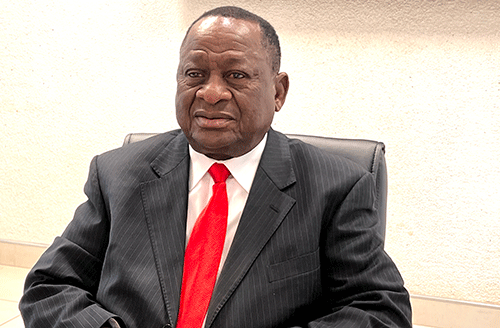Health minister Dr Kalumbi Shangula has said tuberculosis thrives in conditions of poverty, disproportionately affecting marginalised and vulnerable populations.
He said to end TB in Namibia, there is a need to tackle the root causes of these disparities, dismantle barriers to care, and empower communities wholly.
“We must ensure that our efforts are guided by principles of equity, justice and human rights. Investment remains key to driving progress in the fight against TB and leprosy,” said Shangula at the commemoration of World TB Day in Luderitz last Friday.
The minister stated that resource mobilisation and human and technological support for research and innovation, strengthening health systems and expanding access to quality TB services, especially in vulnerable communities, are some of the key issues that need to be addressed.
“This requires not only increased funding from governments, philanthropic organisations, and the private sector, but also smarter allocation of resources to maximise impact and efficiency,” he said.
Shangula added that in 2023, Namibia notified 9 200 patients with TB, an increase from 8 604 cases in 2022, or an increase of 6.9%.
“This increase vindicates our efforts to find cases and close the treatment gap. All those with TB must be found and treated promptly. This will minimise the further spread of the disease,” he said.
Namibia`s current TB treatment success rate is 87%, just 3% short of the target of 90%. Moreover, the ministry has been conducting targeted screening in all three districts of the
//Kharas region namely Karasburg, Lüderitz and Keetmanshoop. A total of 638 individuals were identified as having TB-related signs and symptoms. Out of these individuals, 18 tested positive for TB, and were already initiated on treatment.
“Namibia is cognisant of the targets contained in the 2023 UN High-Level Declaration that we have to contribute to. We are largely on track to achieving them. In 2023, we surpassed five out of the six annual targets, including TB case notifications, finding child TB cases, addressing drug-resistant TB, and the provision of TB preventative therapy for child contacts and other contacts,” said Shangula.
He said: “For this last group, the country is close to reaching a saturation point as most of the registered PLHIV have received TB preventive therapy. We will continue to focus on and make every effort to find the missing TB cases. We will continue to innovate to bridge the gaps left by dwindling international funding. Our government remains committed to achieving the targets set at the 2023 UN High-Level Meeting.”
At the same occasion, WHO Officer in Charge Mary Brantuo pointed out that Namibia is one of the high TB burden countries, ranking 11th among the 30 high TB and high TB/HIV-burden countries with an annual incidence rate of 450 per 100 000 population.
She stated: “Tuberculosis is not a death sentence. With early detection and proper treatment, TB can be cured. It is essential to spread the message that TB is preventable through measures like vaccination, infection control, and access to quality healthcare. Let us raise awareness, and ensure everyone has access to TB screening and treatment.”
Brantuo highlighted that through strong partnerships with all stakeholders, sectors and communities, “we will end the TB epidemic by 2030, and bring hope to TB patients and their families.”
-psiririka@nepc.com.na


